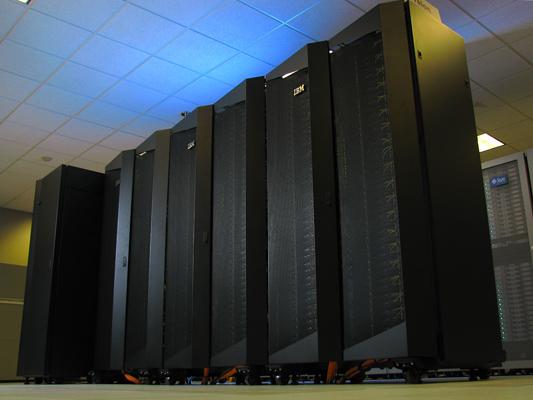While most, if not all, students take advantage of technology on campus, few realize Mississippi State University is home to three supercomputers. These supercomputers (also called high performance computers) are large systems made to compute advanced, complex calculations. They help faculty and students do everything from analyzing weather patterns to running flight simulations.
Trey Breckenridge, the high performance computing resources and operations administrator, said while the idea of these complex systems might seem obscure, these supercomputers are valuable tools.
“We do things with these computers that impact everyday life,” Breckenridge, is in charge of these advanced systems, said of their varied uses.
Weather tracking, hurricane models, mechanical safety studies, computational mechanics and flight simulations are some examples, Breckenridge said.
Top500 is a computer organization that tracks the 500 fastest computers in the world and prints a list twice a year to determine the world’s fastest computers. MSU has had a computer on that list for 19 of the 28 years Top500 has been compiling the list, Breckenridge said.
MSU currently has a system that is the 331st most powerful in the world and is the 18th most powerful system at any American academic institution, he said.
“MSU has long been a leader in supercomputing,” Breckenridge said.
He said these computers are also energy efficient, as green technology is a major concern today.
The fastest of the three systems MSU currently owns has six terabytes of RAM and 3,072 processor cores. It also takes up 16 racks of space, which is used to mount equipment.
Breckenridge said the three systems classified as supercomputers were purchased over a period of about five years, and the newest was purchased about six months ago. He said he expects MSU will continue to invest in these systems because the university does a lot of research activity utilizing these computers.
Robert Moorhead, director of the Geosystems Research Institute, said his department runs models that observe data from satellites that can determine soil moisture, and thus determine the changing irrigation needs of crops.
“You could even come up with a good prediction of the traction on the football field on game night,” Moorhead said of another of these supercomputers’ possible uses.
He said the research that utilizes these systems could even be used by the military.
The data obtained from the satellites could track chemical use in the event of biochemical warfare or bioterrorism by detecting chemicals on crops or in the air.
Moorhead also said the military could benefit from these computers’ research because the satellite data could advise military leaders on the ground traction of particular and what vehicle would function best there.
“We are taking measured data and models to predict actual events,” he said of the GRI’s work.
Kenny Herbert, freshman aerospace engineering major, said he expects to benefit from these supercomputers. He said he is looking forward to this opportunity as he progresses in his major.
“I feel this technology will definitely benefit us,” he said. “I think these supercomputers will allow us to run a better program in aerospace engineering. We could simulate flights more realistically with this advanced technology.”
Categories:
Supercomputers
JEREMY HART
•
October 25, 2010

0
Donate to The Reflector
Your donation will support the student journalists of Mississippi State University. Your contribution will allow us to purchase equipment and cover our annual website hosting costs.
More to Discover






